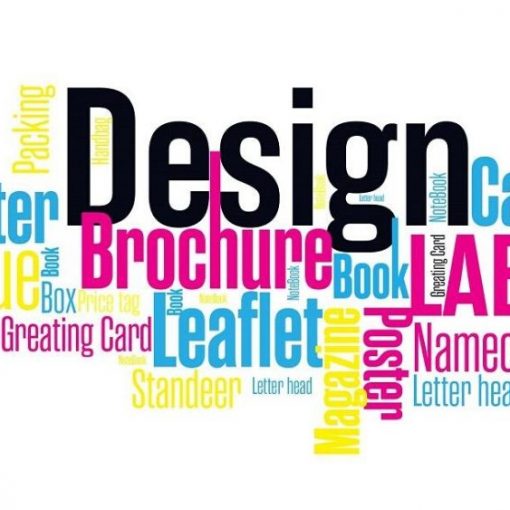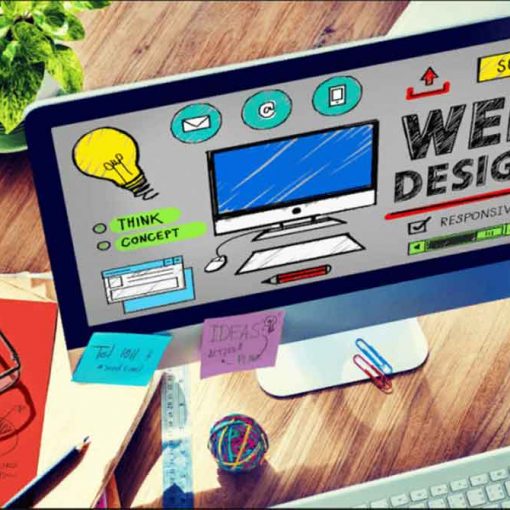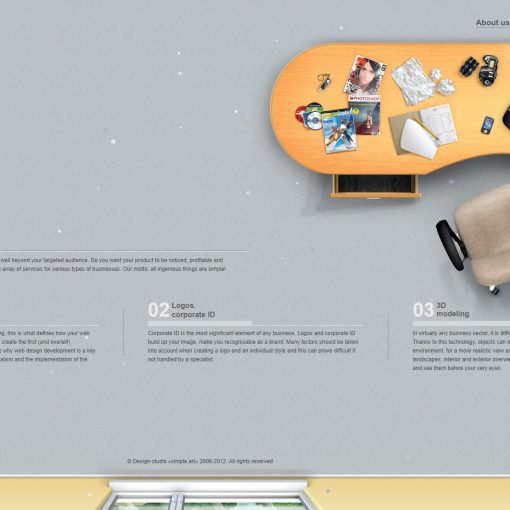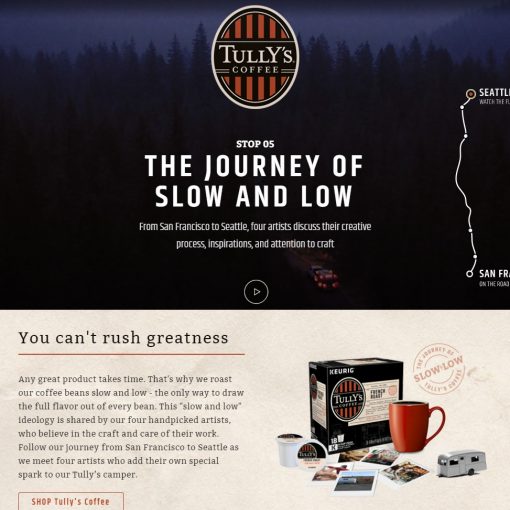Women have been fighting discrimination for years. In the western world it seems to be a less burning problem now than it was before. However, in many industries, especially the predominantly male industries, women still face the glass ceiling. Is web design different? The majority of web designers are still men, but do female designers feel discriminated against? Or is it an industry where women can truly flourish? We have asked five successful talented female designers about their feelings and experiences in this regard. Read what they have to say. Woman in Web Design.
Please describe briefly how you found your way into web design. Has it been a smooth path?
Veerle Pieters:
I started with web design way back in 1997 with designing and coding a site for a local radio station. People liked the design of that and it led to other opportunities when I was approached by a bigger agency to design a few extranet sites for big multinationals. In 2003 I discovered the CSS Zen Garden via a client and got really fascinated with what you could do with CSS. I learned about Web Standards and left tables behind. Since then I never looked back. It wasn’t easy in the beginning as it all was rather technical for a former print designer.
Natalie Jost:
Web Design sort of found me actually. I was in a customer support position and had been serving people in that way for years. In an effort to sort of vent my frustrations with corporate bureaucracy, I started to blog, privately at first. I discovered this whole back room to my blog… the layout, the HTML, the CSS… it was much like opening a certain wardrobe to find Narnia! One day a co-worker saw what I had done with my blog and said I should do it for other people. So I did! Has it been smooth, maybe. I take things pretty smoothly in general, so although it was a lot of work to learn everything (and i’m still learning), it’s a great hobbyjob (job that’s fun).
Jen German:
I got into web design by accident. I was young, just out of college and wanted to show that I was a real go-getter. No one else in the office wanted to create the website, so they paid for me to go to an HTML4 class. I knew after the class that’s what I wanted to do, but I wasn’t sure how it was going to happen. That was in 1998. A few years later, I took a job as a designer of all things print, but I kept learning about designing for the web. I was in awe of the things happening on CSS Zen Garden, and I liked what I saw in WordPress.
In 2007, I said to hell with office life and decided to call myself a freelancer. I only had one client for quite a long time, but I’ve started developing a small client base. Not so huge that it’s unmanageable but enough to keep going.
The road has been a lot smoother than I thought it would be, and a lot better than most have it. I haven’t had a long stretch of time when I wasn’t making money, I’ve maintained good relationships with most of my clients, and I’ve only had one client ever take what I delivered and run.
Alyssa Tucker:
I designed sites as a hobby through high school. Quickly I knew that web design was what I wanted to do for a living so I sought out the right college to obtain a degree at and start on the path to my career. I would say the path has been very smooth.
Mourylise Heymer:
I started working with web design in 1999 when a teacher invited me to work with him in some projects doing HTML, flash animation and graphical user interface design. Doing websites at that point was an empirical exercise, designers and programmers didn’t walk side by side, designers did enjoyable graphical user interfaces but really bad code while programers did better code and worse graphical user interfaces. There wasn’t anybody responsible for information architecture and neither user needs nor interactions were discussed.
Design has grown and found its space and nowadays knowledge as brand requirements, product requisites, specification, functionalities, information architecture, usability, accessibility, HTML, CSS, Javascript, HCI and graphical user interface, are covered by designers, that are finally working side by side with programmers, system annalists, product managers, researchers, and marketing teams. However design culture is still fresh in many technological companies and there those are who still think that graphical user interface is everything a designer can do.

Being a woman web designer, do you ever feel like a minority?
Natalie Jost:
Never, not anymore. When I started in 2004 it was tough to find other women who did web design (as opposed to web programming) and who were really good at it, to emulate. I did feel pretty lost at times, but I made a lot of really great friends who just happen to be men. It was a little weird, but women are weird too.
Alyssa Tucker:
Personally, no. While I do know that the numbers say that we are a minority, I just don’t see it in my own experiences. I would say I know just as many women web designers and I do men. I also work at a pretty diverse company.
Mourylise Heymer:
I believe women are still minority as web designers but I don’t think it’s a problem, actually it’s very natural and tends to change as society roles and people interests are changing.
Veerle Pieters:
No never, as I don’t think in gender terms when working as a web designer. I just do what I am good at.
Jen German:
I don’t, to be honest with you, but that doesn’t mean it’s not happening. I just don’t pay attention to things like that. I’m not very good about networking and I learn most of my skills on my own. So I sort of get to exist in this bubble that is my home office where I keep my head down and work. My clients are coming to me through various sites where my work has been featured. I haven’t really had time to worry or wonder if I’m not getting this project or that client because I’m a woman or some other silly reason.
Now, if I wasn’t working steadily or perhaps if I was listening to others and being influenced by their opinions, I may very well have a different sense of things. But it just isn’t my style to allow myself to think that way or even to consider that I couldn’t do something because of my gender. Understand, my mother is a very strong woman and powerful role model. She’s worked for doctors and surgeons for years and handles them like they’re children. She doesn’t let anyone stop her from doing anything, so I learned from her to be strong, go after what I want and earn it. Everything I do each and every day is because I have worked hard to make it happen. If someone doesn’t like me or my work because I’m a woman, then I wouldn’t want to work for that person anyway.

Do you ever feel discriminated against or is the web a level playing field? Is it as easy for you as it is for your male colleagues to find clients and jobs?
Alyssa Tucker:
No, I don’t feel discriminated against. I think it all boils down to skill. If I didn’t get a job that a male ended up getting I wouldn’t think for a second that it’s because of gender, I would think that his skills are more in line with what the position requires. I don’t have to worry about freelance so much since I work at an office but I can tell you that as soon as people know that you are a web designer, they all want your help with a site and could care less about your gender. I have to turn a lot of projects down.. so I’d say finding clients isn’t a challenge.
Mourylise Heymer:
I’ve never felt discriminated, actually being a female web designer has worked as a benefit for gaining visibility in the field. Finding clients and jobs depends on your knowledge, skills, professional experience and pro activeness, and gender has nothing to do with that.
Jen German:
I cannot say that I have. Perhaps I just didn’t notice it, or maybe I’m just the luckiest person ever. I have always been fortunate to have clients, managers and colleagues who accepted me for who I am (and believe me, that’s not always easy). They have valued and critiqued my work seemingly as they would anyone else’s. I demand a lot of myself, and I think other people recognize and appreciate that. I certainly know there are fields where women are discriminated against and aren’t valued as much as a man even if they offer the same effort. Just haven’t personally experienced it, but I’m not discounting the notion that other female designers may have. Do think it’s a sad thing to be happening in 2010.
Natalie Jost:
This I don’t have a lot of experience with. I’ve only applied for three jobs as a web designer, have worked freelance all this time. For the first job, I was passed over for someone with flash skills, and he happened to be a man. The second was a budget issue. They decided they couldn’t afford to hire someone after all and they were very sorry for jumping the gun. The third, I don’t know who I was up against, but I got the job with enthusiasm, though it was a few weeks later that I became pregnant (and wildly hormonal) with my twins and had to quit, so you could say being a woman was tremendously inconvenient for me in that situation! But yes, I always felt the playing field was level, though my experience is limited.
Veerle Pieters:
No never had that feeling. In the end it all comes down to talent so it doesn’t matter if you are a man or woman. If you are good in what you do you’ll find work.

Do you sometimes feel underrepresented or vice versa more represented than your male counterparts?
Jen German:
This I can definitely speak to. I am becoming more and more aware of the sheer lack of female web design leaders of all the time. I never thought about it until Lee Munroe did an article on the 25 Hot Female Designers. It struck me as really weird that he could only come up with 25 females (he has since followed that article up with a Part 2).
I could name 25 hot male designers just sitting here, names that everyone on the web knows, and I would have trouble stopping at 25. But I didn’t recognize half the women on that list. Who are the great female web designers a typical person in our field can name? Veerle Pieters, Cindy Li, Larissa Meeks, Kris Colvin, Meagan Fisher. Certainly amazing, fantastically talented women. But only coming up with 5 is a bit of a head scratcher. I was just at the Big Omaha conference for web entrepreneurs and tweeted about my disappointment with the female presenters.
Of 14 speakers, only 4 were women. Of those 4, only 2 gave presentations, one emceed the event and one sat on a panel. Does that mean less than 30% of web personnel (designers, bloggers, entrepreneurs, etc) out there is female? A little surprising to me, and truly is something I don’t know how to take.
Mourylise Heymer:
I don’t think so, there are already many women doing an excellent job.
Veerle Pieters:
No never. As I mentioned above I never think in gender terms when work is concerned. Never had a problem with being a woman in all the years that I am doing this.
Natalie Jost:
I don’t think about it much.
Alyssa Tucker:
I personally don’t feel that way but I think that generally being a woman in the web design industry would be an advantage if anything.Since there are less of us as a whole, having a female web designer could give a project or company a fresh perspective. But I still believe that skills and a solid portfolio is key.

Why do you think women are so few in web design?
Mourylise Heymer:
It’s cultural but it’s changing. When I was a child my parents gave me dolls (not that I wanted, if you catch what I mean, in fact it’s the suitable toy for a girl… isn’t it?), today I would rather I have had a computer or an xbox as my little sister did. It’s just a matter of time until male and female web designers will be at same proportion.
Veerle Pieters:
I think a big part is the technical hurdle but I am not sure.
Natalie Jost:
Honestly, I think many women are afraid. I hear from very creative gals all the time who tell me “oh I’d love to do what you do” but they just choke up when they see code. They don’t think they can do it. They’ll never know. I thought that way too, but like cooking, I just have to want it bad enough. Right now I want to design more than cook, so I still can’t cook. Well, it’s not that I CAN’T cook, I just don’t want it bad enough yet! I see ingredients I’ve never heard of, and talk of “braising” and “al dente” and I close the cook book and throw something in the microwave. Ladies, if you want to design for the web, just do it. But you have to really want it.
Jen German:
I truly don’t know why women aren’t getting into the web. Maybe they just aren’t interested in coding side of things or spending long hours behind a computer. I do find it to be lonely sometimes working by myself for hours and hours. I miss the collaboration with others and getting the benefit of discussing and debating. But it could be something very different entirely. This isn’t a field I ever thought I would go into, but I’m glad I’m here. No one pushed me toward this line of work. And if tomorrow I wake up and I don’t want to do it anymore, I’ll go another way. Each day I follow my own path to happiness. Hopefully that’s what every woman has the opportunity to do, and her path leads her elsewhere, the whole point is to find fulfillment in life.

What would you recommend to starting female designers?
Veerle Pieters:
Don’t let the technical side frighten you. Everything comes with a learning curve. As a web designer it is important to keep that drive to learn new things. This sector evolves a lot and the learning never stops. If you are serious you got to stay passionate.
Natalie Jost:
Forget all about male/female stuff. Ignore it. You’re a web designer. Period. That said, you have a unique perspective and design aesthetic that many clients will seek out, and many will avoid, so do be aware of how your femininity can affect your design work (lay off the cutesy stuff until a client asks for it). And value men for their equal differences in point of view and creative style. Like red and green in a traffic light, you have different functions, but it’s chaos if you can’t work together.
Alyssa Tucker:
Be aware of what is currently new in the industry but don’t allow yourself to get hung up on the work of others, focus on your own goals and what makes you happy.
Mourylise Heymer:
I think women can take advantage in user experience design because they are more sensible and it is useful to see details that really make difference in human computer interaction. I recommend hard work, lots of reading and guts 🙂
Jen German:
Everyone always gives the same advice to young designers. It’s all good advice and take it to heart. But I think it’s important to remember to have fun. We’re lucky enough to be working in one of the most dynamic and prevalent fields of this age. If you’re working someplace or with someone or on some project that is just draining you and you’re miserable with no end in sight, then leave it. It isn’t worth it to burn yourself out on something that just isn’t floating your boat. Lose your expectations and pursue your passions endlessly. If you’re true to yourself and what you stand for, everything else will fall into place.
Ladies, thank you very much for your candid asnwers. I hope other female designers will find them inspiring.




